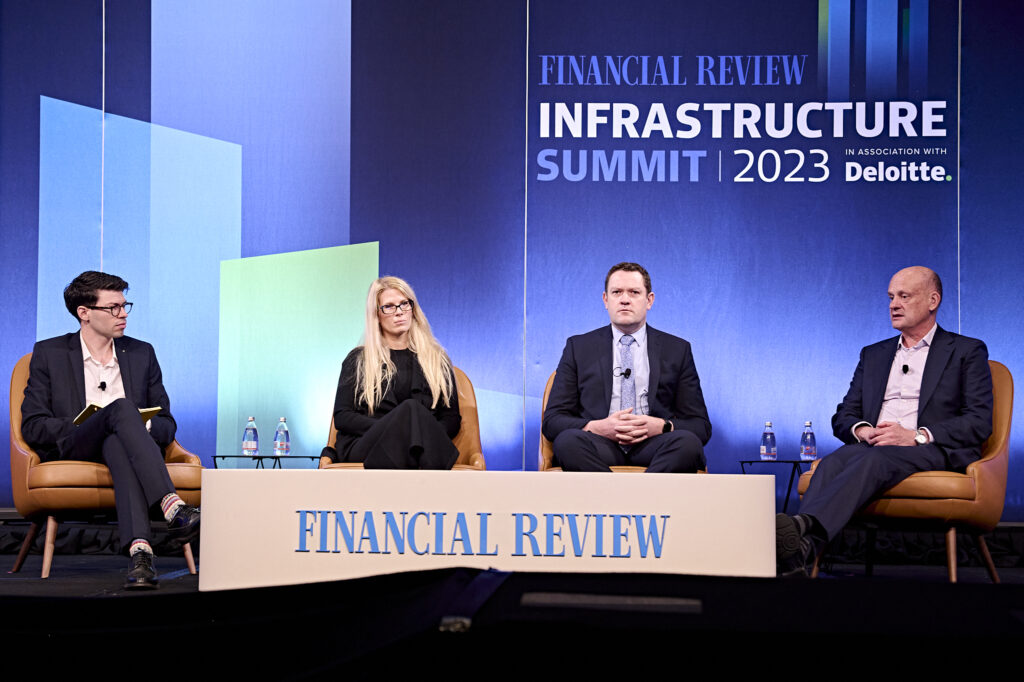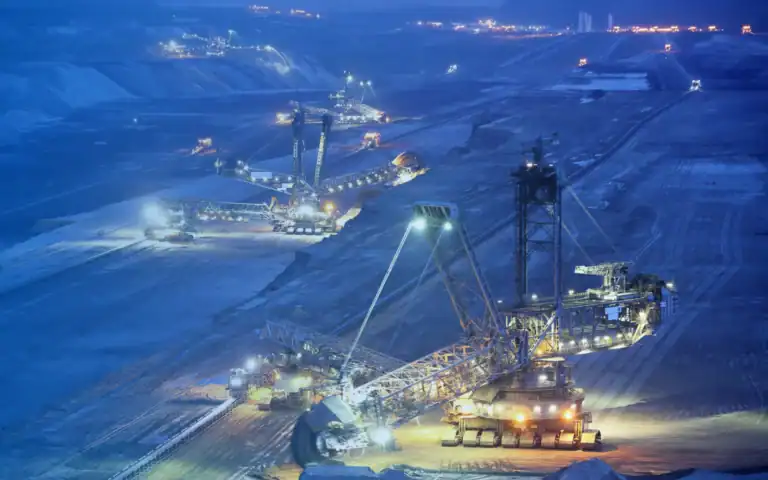The AFR Infrastructure Summit, held in Sydney from 13-14 November 2023, brought together Australia’s top policymakers, chief executives, and investors to debate how the priorities for infrastructure investment and planning have changed in 2023 and what the rethink means for the nation’s economic growth.
As a key player in the delivery of the country’s critical communications infrastructure, BAI CEO Peter Lambourne joined Daisey Stampfer, Group Executive Strategy and Transformation, Superloop Ltd, Hamish Hansford, Deputy Secretary, Cyber and Infrastructure Security Group, Department of Home Affairs, and AFR Tech Editor Nick Bonyhady for a panel conversation at the event.
Some of the key focus areas of discussion, and Peter’s contributions, included:
How do the private and public sectors work together to keep Australia competitive?
This depends on how we define being competitive. For example, productivity in Australia has been on a declining trend over recent years. There is an opportunity however to improve this through investment in technology, and in particular connectivity. BAI is an advocate for execution through public private partnerships, and co-investment with the public sector is a good way to achieve this. This would allow for accelerated technology deployment delivering social and commercial outcomes more quickly – with the private partner taking on the risk. There are great examples of this happening at scale overseas, and our advice is for Government to be bolder with these initiatives here in Australia.
How does Australia develop resilient communications networks?
It is important to highlight the critical role of radio in times of crisis, with ABC radio sites being crucial for emergency broadcasting. In June 2023 The Hon. Minister for Communications, Michelle Rowland MP announced the funding of the Broadcasting Resilience Program (BRP) so that communities in rural and regional Australia most at-risk from natural disasters can stay connected and informed. The BRP will increase the resilience of ABC broadcast sites across the country. The national backbone of rural and regional broadcasting is provided by BAI who will deliver the work program over the next three years.
Security is also an important consideration. For many years, we have been taking a holistic approach through consideration of multiple risk factors which are aligned to those outlined in the Security of Critical Infrastructure Act 2018 (the SOCI Act).
Is Australia investing enough money in digital systems?
The pace of private wireless network adoption is accelerating across the world, and we see this as a real opportunity for Australia. There are many benefits for industry, with difficult environments like ports and factories benefiting from access to advanced technology that is faster and more reliable. Investment in public wireless connectivity is another. For example, Australia is a sporting nation, and connectivity is the lifeblood of the modern stadium. Yet we are behind on delivering an ultimate fan experience. 5G mobile networks—both public and private—offer the massive capacity, high security and low latency necessary to support a growing ecosystem of advanced applications like IoT, augmented reality and high-definition streaming video. They’re also extremely reliable, even in high-volume conditions. Private networks overseen by the stadium operator deliver maximum levels of control, whereas the carriers manage public networks. A neutral host distributed antenna system (DAS) can ensure the entire stadium is covered and each carrier receives equal service.
For more information on the event visit: https://live.afr.com/infrastructure/
Image credit: Michael Quelch






